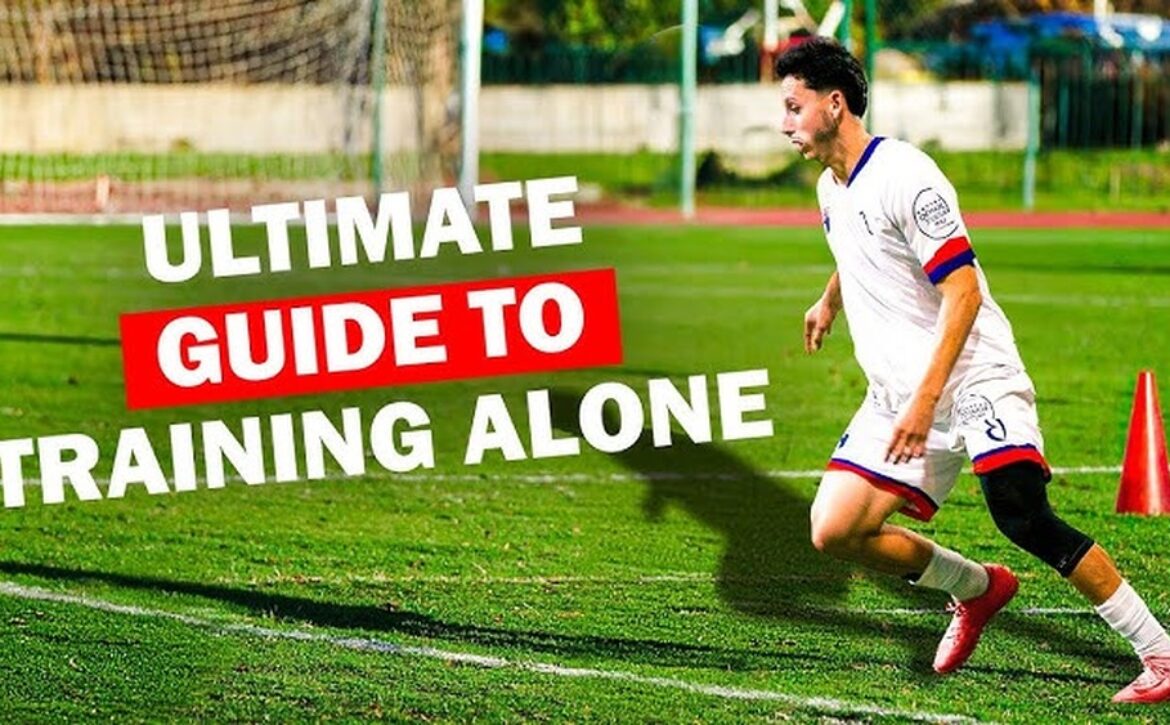
How to Become a Sports Coaching Pro: Ultimate Guide
Have you ever watched a sports game and felt a surge of excitement, not just from the action on the field, but from the thought of guiding a team to victory? If you’ve ever imagined yourself on the sidelines, calling the shots and inspiring athletes to reach their full potential, you’re not alone.
Becoming a sports coach is more than just a career; it’s a passion that lets you transform lives through the power of sport. As you dive into this article, you’ll uncover the essential steps to becoming a sports coach, and discover how you can turn your love for the game into a fulfilling and impactful profession.
Whether you’re drawn to the thrill of competition or the joy of mentorship, this guide will show you how to harness your skills and make a real difference. Ready to take the next step in your sports career? Keep reading to find out how you can become the coach that athletes look up to and trust.
Setting The Foundation
Embarking on a journey to become a sports coach begins with a solid foundation. This pivotal stage sets the tone for your coaching career. Whether guiding athletes to victory or nurturing their skills, understanding the core elements is vital. Dive into the essentials that will empower you on this path.
Understanding The Role
Recognize what a sports coach truly does. Coaches inspire and lead athletes. They develop strategies and foster team spirit. They also teach discipline and fair play. A coach shapes the athletic experience. This role is more than tactics and training. It involves mentoring and motivating individuals. Coaches guide athletes through challenges and triumphs alike.
Personal Traits And Skills
Consider the traits a successful coach embodies. Patience is crucial. Coaches need the ability to listen. They must communicate clearly and effectively. Problem-solving is essential for overcoming obstacles. Resilience helps in facing setbacks. A positive attitude lifts the team’s spirit. Passion for the sport fuels dedication. Empathy allows understanding of players’ needs. Develop these traits to enhance your coaching impact.
Educational Pathways
Explore how to become a sports coach through educational pathways. Start with a degree in sports science or physical education. Gain hands-on experience through internships and volunteer coaching opportunities.
Embarking on a journey to become a sports coach is both exciting and rewarding. The right educational pathway can make all the difference in your coaching career. Whether you’re passionate about football, basketball, or any other sport, understanding the educational requirements is crucial. You might wonder, what steps should you take to turn your passion into a profession?
Degrees And Certifications
Pursuing a degree in sports science or physical education is often the first step. These programs provide a solid foundation in anatomy, physiology, and sports psychology. Universities across the globe offer specialized degrees tailored to future coaches. Certifications are equally important. They add credibility to your resume and showcase your dedication. Organizations like the National Strength and Conditioning Association (NSCA) offer certifications that are recognized globally. Consider which certifications align with your career goals and the sports you are passionate about.
Specialized Training Programs
Specialized training programs offer hands-on experience. They bridge the gap between theory and practice. These programs often include workshops, seminars, and practical sessions with experienced coaches. Look for programs that offer mentorship opportunities. Learning directly from seasoned professionals can provide invaluable insights. Are there local clubs or organizations where you can volunteer or intern? Gaining real-world experience sets you apart in the competitive field of sports coaching. Choosing the right educational path is crucial. It shapes your career and prepares you for the challenges ahead. Where will your passion for coaching take you?
Gaining Experience
Gaining experience is crucial for aspiring sports coaches. It’s the foundation that builds your skills and prepares you for real-world challenges. Whether you’re new to coaching or transitioning from another field, hands-on experience is invaluable. It helps you understand team dynamics, improve communication, and develop strategic thinking. Dive into different opportunities to gain this experience, such as internships, apprenticeships, or volunteering. Each offers unique benefits to enhance your coaching journey.
Internships And Apprenticeships
Internships offer a structured way to learn coaching skills. They provide a chance to work with seasoned coaches. You observe, assist, and learn the ropes. Apprenticeships allow more direct involvement. You’ll often take on responsibilities under supervision. Both options enhance your knowledge. They also let you build professional relationships. Networking is key in the sports industry. It opens doors to future job opportunities. Internships and apprenticeships often lead to permanent positions. Employers value hands-on experience. It’s a stepping stone in your coaching career.
Volunteering Opportunities
Volunteering is another great way to gain experience. Many local sports teams seek volunteers. This gives you a chance to practice coaching techniques. You learn how to manage different age groups. Volunteering is flexible. It can fit into your schedule easily. It’s a chance to give back to the community. This experience boosts your resume. It shows your commitment to the field. Volunteer coaches often receive valuable feedback. This helps improve your skills further. It’s a rewarding way to start your coaching journey.

Building Your Network
Building your network is key to becoming a successful sports coach. Networking opens doors to opportunities in the sports industry. It helps you learn from others and grow your career. To succeed, connect with professionals and join coaching associations.
Connecting With Industry Professionals
Networking with industry professionals is vital for growth. Attend sports events to meet coaches and trainers. Engage in conversations and exchange contact information. Follow up with them to maintain relationships. Use social media to connect with professionals globally. LinkedIn is a great platform for this purpose. Share your experiences and insights regularly. Join forums and groups related to sports coaching. Participate actively to make your presence known.
Joining Coaching Associations
Coaching associations offer valuable resources and connections. They provide access to workshops and seminars. These events enhance your coaching skills and knowledge. Memberships often include newsletters with industry updates. These keep you informed about trends and best practices. Associations host networking events where you meet other coaches. Forming relationships here can lead to collaborations. Some associations offer certifications that boost credibility. This helps in gaining trust from teams and athletes.
Developing Your Coaching Style
Developing your coaching style involves understanding athletes’ needs and adapting strategies to support their growth. Effective sports coaching requires communication, patience, and a keen sense of observation. Building trust with athletes enhances their performance and fosters a positive team environment.
Developing your coaching style is a pivotal step in your journey to becoming a successful sports coach. It shapes how you communicate, motivate, and interact with your athletes. Your coaching style can be the difference between just managing a team and truly inspiring it.
Finding Your Unique Approach
Your coaching style should reflect who you are. Think about what makes you tick as a coach. Do you thrive on discipline, or are you more about encouragement? Consider your values and how they align with your coaching philosophy. If you’re passionate about teamwork, make it a focal point in your coaching sessions. A friend of mine, a basketball coach, always starts his practices with a team huddle, emphasizing unity. Experiment with different techniques. You might find that a certain strategy resonates more with you and your team. Trial and error can be your best teacher.
Adapting To Different Teams And Athletes
Every team has its own dynamics, and every athlete is unique. Pay attention to these nuances and adjust your style accordingly. Some athletes may need more guidance, while others might thrive on independence. I once coached a soccer team with a mix of beginners and seasoned players. Tailoring my approach to each player’s experience level was key. Communication is crucial. Ask your athletes for feedback about your coaching style. What works for them? What doesn’t? This dialogue not only improves your methods but also builds trust. By developing a coaching style that’s authentically yours and adaptable, you can lead your teams to success. What changes can you make today to refine your approach?

Staying Updated
Staying updated is crucial for becoming a successful sports coach. Regularly follow sports news and attend coaching workshops to learn new strategies. Engaging with other coaches and experts can also provide valuable insights and tips.
Staying updated is crucial if you want to excel in sports coaching. The landscape of sports is ever-evolving, with new techniques, technologies, and research emerging constantly. As a coach, your ability to adapt and integrate these changes directly impacts your effectiveness and success. How do you ensure you stay ahead of the curve and not just keep up with it?
Continuing Education
Continuing education is your gateway to staying informed. Enroll in workshops, seminars, and online courses to broaden your knowledge. These platforms often provide insights into the latest strategies and research findings. Consider joining professional coaching organizations. They often offer resources and networking opportunities that can enhance your expertise. Staying connected with peers can lead to valuable exchanges of ideas and experiences. Reading books and journals on sports science can also bolster your skills. Prioritize those that offer actionable advice and evidence-based methods. The more you learn, the better equipped you’ll be to handle the diverse challenges of coaching.
Embracing New Techniques And Technologies
Technological advancements are transforming sports coaching. Tools like video analysis software and wearable tech offer insights into player performance. Are you using these tools to refine your coaching strategies? Experiment with different training techniques. Integrating new methods can lead to improved athlete performance. Don’t shy away from trial and error; it’s a powerful learning process. Encourage your athletes to give feedback on new techniques. Their input can provide practical insights that you might overlook. By involving them, you foster a collaborative coaching environment, which can lead to better results.
Marketing Yourself
Marketing yourself is crucial in the sports coaching industry. It sets you apart from the competition. A strong personal brand and online presence attract potential clients. Here are key steps to help you market effectively.
Creating A Personal Brand
Your personal brand is your identity as a coach. It reflects your values, skills, and style. Start by defining what makes you unique. Identify your strengths and areas of expertise. Think about the qualities clients appreciate in you. Communicate these traits clearly and consistently.
Design a professional logo and choose a color scheme. Use them in all your materials. Maintain a consistent tone and voice across platforms. This helps build recognition and trust. Share success stories and testimonials to highlight your achievements. Let others see your results.
Utilizing Social Media And Online Platforms
Social media is a powerful tool for coaches. It allows direct engagement with followers. Use platforms like Facebook, Instagram, and LinkedIn. Share valuable insights, tips, and motivational content. Post regularly to keep your audience engaged.
Join online coaching forums and groups. Participate in discussions and offer advice. This showcases your expertise. Create a website or blog to share your knowledge. Optimize it for search engines to increase visibility. Provide useful content that addresses common concerns.
Consider creating video content. Tutorials and live sessions can demonstrate techniques. They offer a personal touch and boost credibility. Respond to comments and messages promptly. Build relationships and show your commitment to helping others.
Navigating Challenges
Becoming a sports coach involves overcoming various challenges. Develop skills in communication, strategy, and motivation. Build trust with athletes and adapt to different learning styles.
Navigating challenges is a crucial aspect of becoming a sports coach. Every coach faces obstacles that test their patience and skills. Understanding how to overcome these hurdles is essential. It not only improves your coaching abilities but also helps your athletes grow. Let’s explore some common challenges and effective strategies to handle them.
Dealing With Pressure And Expectations
Pressure is a constant companion in sports coaching. Coaches often face high expectations from athletes, parents, and fans. Handling this pressure requires a calm and composed mind. Setting realistic goals can help manage expectations. Encourage open communication with your team. Discuss goals, challenges, and progress regularly. This creates a supportive environment where everyone feels heard. Remember, your attitude sets the tone for the team. Stay positive even in difficult situations.
Conflict Resolution Strategies
Conflicts are inevitable in team sports. Differences in opinions and emotions can lead to disagreements. As a coach, resolving conflicts is part of your role. Listen actively to all parties involved. Understand their concerns and viewpoints. Encourage open dialogue to find common ground. Establish clear rules and consequences for behavior. This helps prevent future conflicts. Create a culture of respect and collaboration within the team. Your actions will inspire athletes to handle conflicts maturely.
Achieving Success
Achieving success as a sports coach involves dedication and strategy. Coaches inspire athletes to reach their potential. Success isn’t just winning games. It means building strong teams and encouraging growth.
Celebrating Milestones
Celebrate small victories. Every win boosts team spirit. Acknowledge progress, no matter how minor. This creates motivation. Athletes feel valued. Positive reinforcement works wonders. It builds confidence in players. Make each milestone count.
Continuous Growth And Improvement
Successful coaches never stop learning. They seek new techniques. Attend workshops and seminars. Stay updated with the latest trends. Encourage feedback from players. Adapt strategies based on team needs. Growth is a constant process. Always aim for betterment.

Frequently Asked Questions
What Skills Are Needed For Sports Coaching?
Sports coaches need excellent communication and leadership skills. Understanding sports techniques and strategies is essential. Patience and motivational abilities help inspire athletes. Adaptability and problem-solving skills are crucial for handling challenges. Strong organizational skills aid in planning and execution.
How Do You Start A Coaching Career?
Begin by gaining experience through volunteering or internships. Obtain relevant certifications and education in sports science. Networking with professionals in the field is crucial. Consider starting at local clubs or schools. Continuously improve your skills and knowledge through workshops and courses.
What Are The Benefits Of Sports Coaching?
Sports coaching offers personal and professional growth. It provides opportunities to inspire and mentor athletes. Coaches can enjoy a sense of accomplishment from team successes. Building strong relationships with players is rewarding. It also offers a dynamic and engaging work environment.
How Long Does It Take To Become A Coach?
The time varies based on experience and education. Basic certifications can take a few months. Advanced degrees or specialized training may take years. Gaining practical experience is crucial. Continuous learning and development are part of a coaching career.
Conclusion
Becoming a sports coach is a rewarding journey. It requires patience, dedication, and passion. Start with understanding the basics of coaching. Gain experience through volunteering or internships. Build your knowledge with courses and certifications. Networking is key. Connect with other coaches and sports professionals.
Stay updated with the latest trends and techniques in sports coaching. Practice good communication skills. Inspire and motivate your athletes. A career in sports coaching can be challenging but fulfilling. Your efforts can shape future champions. Keep learning, stay motivated, and enjoy the journey.
Your passion can make a difference in young athletes’ lives.





